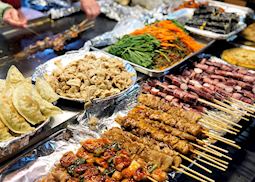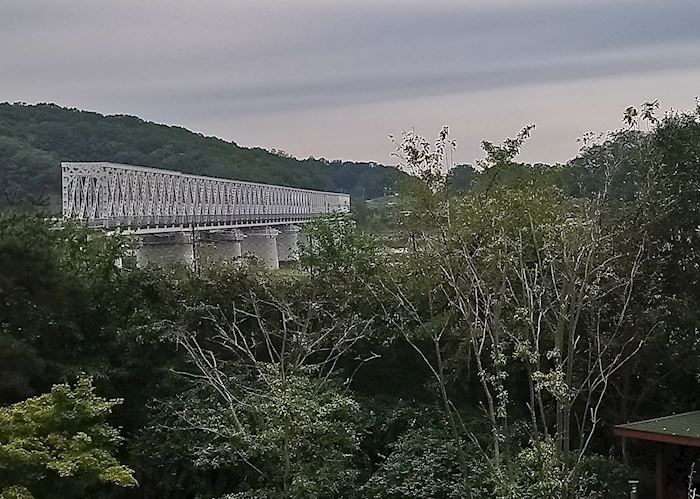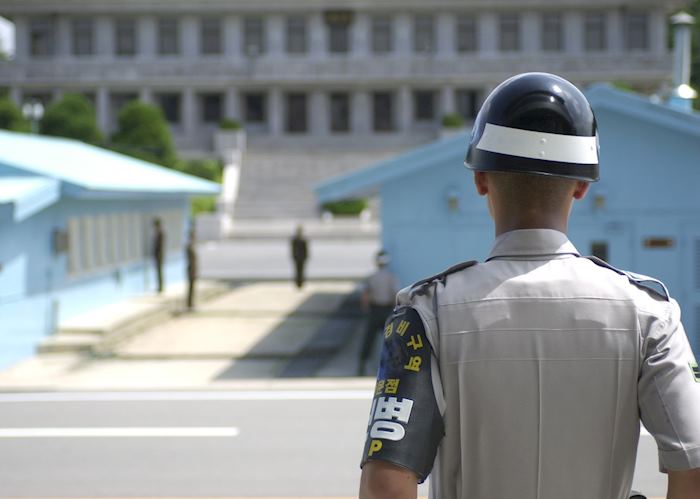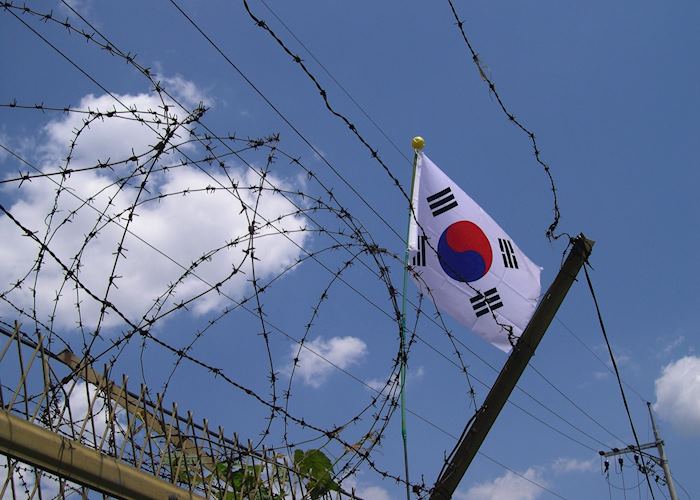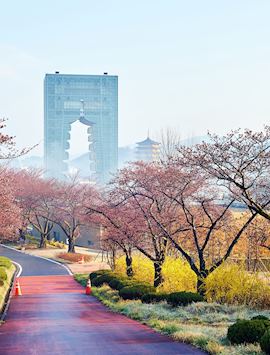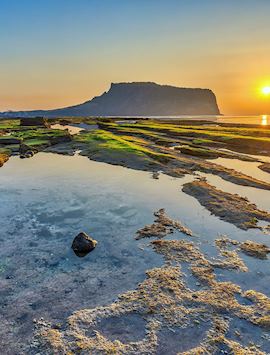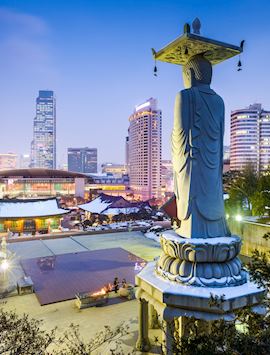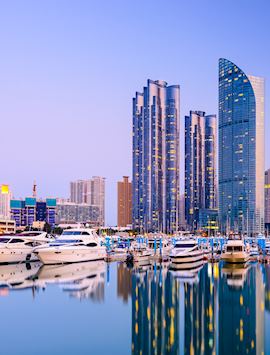High fences, barbed wire and an unsettling sense of quiet mark out the Demilitarized Zone (DMZ), a 250-km (155-mile) buffer zone between North and South Korea. It’s one of the most heavily militarized borders in the world, in place since the Korean Armistice Agreement moved frontline troops back 2,000 m (1.2 miles) on each side in 1953. A visit facilitates a greater understanding of the history of this volatile region, a chance to explore the DMZ, see the view from an observatory, explore a tunnel dug under the border and the bridge where prisoners of war were swapped. It’s a solemn place with large numbers of military personnel on each side and the sense that relations are still very tense. The visit is led by a local guide who can answer questions on the history of the border and the conflict, as well as the ideological differences between the two countries.
You’ll be picked up from your hotel on the morning of your tour which is taken as part of a small group. Your local guide will introduce you to the history of the Korean War and the border as you’re driven for about an hour and a half north from Seoul to the Joint Security Area (JSA) at Panmunjom. This is the only area where forces from the two sides meet and where diplomatic meetings occasionally occur.
Your first stop is at the reconstructed Bridge of No Return which crosses the Military Demarcation Line between the two countries. Prisoners of war were swapped across this bridge after the war ended in 1953, and in 1968, the crew of the USS Pueblo, who had been held captive for 11 months after being captured by the North Korean navy in international waters, were finally released here.
The tour continues on to the 3rd Tunnel exhibition hall, one of four infiltration tunnels built by the North Koreans beneath the DMZ in order to launch attacks. The tunnel was discovered in 1978 and you can now walk, hunched over due to the low ceiling, along its length.
The next stop will be the Dora Observatory, which looks out over the DMZ to the North Korean border. With binoculars you should be able to spot buildings in North Korea, see its flagpole, and get an impression of how wide and long the DMZ is.
The tour ends on a lighter note. On the way back to Seoul, you’ll visit the Ginseng Centre briefly to see how this prized root is grown and harvested, and to learn about how it has been used in traditional medicine for centuries.
